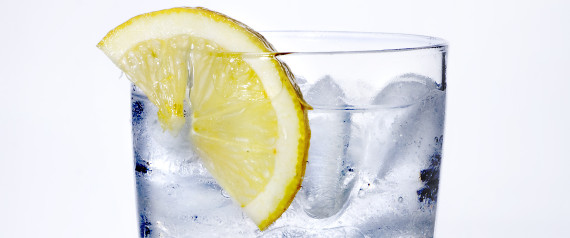
How germy are those lemon wedges we plop into our water glasses at restaurants?
The Huffington Post | By Laura Schocker
A slice of lemon can spruce up plain-old water, but you might be drinking more than you bargained for. Turns out, those seemingly innocuous water glass garnishes (see also: iced tea and diet soda) could be serving up a host of unappetizing organisms.
For one Journal of Environmental Health study, researchers swabbed the rinds and flesh of 76 lemons from 21 restaurants collected during 43 visits and found that a whopping 70 percent of them produced microbial growth. The samples were collected as soon as the beverage (either soda or water) was served, before drinking or touching, and while the researchers couldn’t pinpoint the exact origins of the microorganisms, they speculated that they may have come from the restaurant employee or raw meat or poultry contamination, among other sources. “Although lemons have known antimicrobial properties, the results of our study indicate that a wide variety of microorganisms may survive on the flesh and the rind of a sliced lemon,” the authors wrote in their report. “Restaurant patrons should be aware that lemon slices added to beverages may include potentially pathogenic microbes.”
Philip Tierno, Ph.D., clinical professor of microbiology and pathology at NYU Langone Medical Center, has conducted dozens of similar experiments, including one commissioned by ABC news, which found that half of lemon wedges collected from various restaurants were contaminated with human fecal matter. What’s more, the ABC cameras nabbed employees handling lemons with their bare hands. And in Tierno’s experience, restaurants may not be diligently washing lemons — or they rinse them, but don’t scrub. It’s also easy for a worker’s hands, whether it be a bartender serving up a drink or a chef slicing the fruit in the kitchen, to cross-contaminate after dealing with patrons, washing glasses and handling food.
“We found in every single group of specimens from different institutions, representations from the three body sites that men usually impart their flora,” Tierno tells HuffPost Healthy Living of his research. Those include bacteria from the intestines (in the form of fecal matter), the respiratory tract (think coughing, talking, sneezing) and the skin. Among the specimens collected were E. coli, staphylococcus epidermidis and candida, a fungus commonly found in the vagina. While his team didn’t test specifically for viruses, such as norovirus (a.k.a. the stomach flu) or the cold virus, this type of contamination is typically an indicator that they are present, he explains.
But beyond the gross-out factor, how likely is a lemon to actually make you sick? The answer, according to Tierno, is that there is a decidedly small but distinct risk. “The usual course will probably result in no infection, but there is a possibility,” he says, with a caveat: “You can’t live in a bubble. Your immune system is usually pretty good.”
Germaphobe lemon lovers might opt to squeeze the juice directly into the water instead of letting the wedge float about for the duration of a meal — doing so will reduce exposure, though not eliminate it, as Tierno points out that even the flesh of the lemon can be contaminated.
But before you freak out, here’s some perspective: His research has turned up similar organisms all over restaurants, from ketchup bottles and salt and pepper shakers to menus and table surfaces. And the same likely goes for a variety of other drink garnishes, including onions, limes and your cherry on top. Aside from basic hygiene, like hand washing and choosing a clean restaurant, sometimes you really do have to trust your immune system to do its job. “Microbes are ubiquitous … You’re not going to escape unscathed forever,” he says. “You do your best to prevent unnecessary illness.”
This article originally ran on huffingtonpost.com






